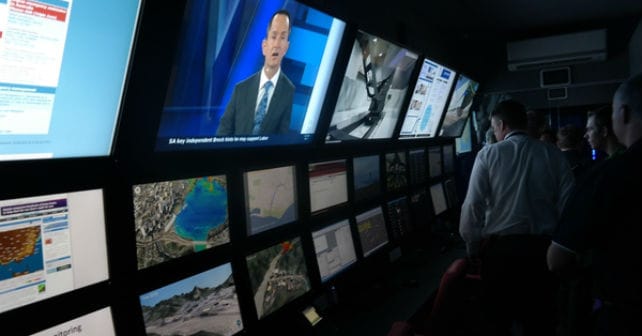College kids around world 'jam' for sustainability
 A unique international crowdsourcing event recently held by IBM — the Smarter Planet University Jam — revealed that a vast majority of students believe in the power of green advocacy and the ability of education to promote sustainability.
A unique international crowdsourcing event recently held by IBM — the Smarter Planet University Jam — revealed that a vast majority of students believe in the power of green advocacy and the ability of education to promote sustainability.
Nearly 2,000 students and faculty from more than 200 universities in 40 countries took part in the Jam, along with IBM experts, clients and business partners. The event demonstrated that:
- Eight out of 10 students want universities to revamp traditional learning environments;
- More than 90 percent want to join or start a green advocacy group at their campus;
- Sixty-four per cent of students believe the world has a chance to reverse carbon emissions by 2025; and
- Sixty per cent believe education and efficient transportation offer the best hope for sustainability of our cities.
“The Smarter Planet University Jam was the first time that so many university-aged students came together in an online forum to brainstorm ideas to better our world,” said Jai Menon, vice president of technical strategy and university programs for IBM. “Students are confident that their future will be a smarter place — a world where they will drive cars that get 100 miles per gallon, learn in virtual classrooms connected with students across the globe, and where they can run their businesses on a secure, energy-efficient and interconnected grid.”
To ensure ongoing dialogue with university students, IBM plans to create a student advisory board that will collaborate with IBM on recommendations for future student involvement in Smarter Planet initiatives. IBM also announced plans to launch a Facebook application that allows students to connect with IBM mentors. In addition, IBM is launching a new program for employees to remotely initiate and oversee student projects in Smarter Planet areas.
Students taking part in the University Jam brainstormed on a number of topics throughout the event: the skills needed to be competitive in a globally integrated economy; environmental protection, water management and conservation; fostering pollution-free and inexpensive energy; and providing advanced healthcare as the world’s population continues to grow rapidly, especially in developing nations.
The “Jammers” foresaw the need to create a new model of university education around smarter campuses that are interconnected, enriched and fed by on-the-ground knowledge developed over social networks. Such universities would incorporate broader use of virtual environments and videoconferencing to enhance learning, interaction, networking and communication. In a poll conducted during the Jam, 82 per cent of those polled said they believed “virtual worlds” are a great place to learn future skills.
Both faculty and student participants contributed over 100 examples and ideas for how their universities are — or could be — “going green,” including:
- Using deterrents like expensive campus parking to encourage walking;
- Charging extra fees for plastic bags in all campus shops;
- Setting weekly printing limits; and
- Shifting to solar-powered and LEED-certified campus buildings, and electric campus vehicles, to promote smart energy use.
“This kind of free-flowing forum is extremely vital to the sustainability movement, where far too often good ideas are never shared or worse, never listened to,” said Taylor Vogt, a student majoring in political science at Pace University.




